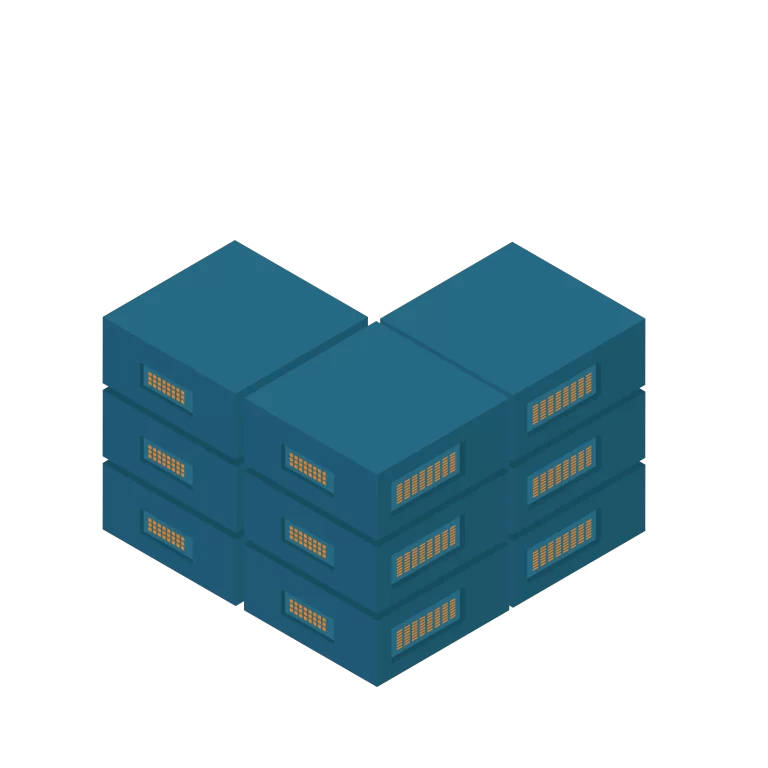What does DDP mean in shipping terms?
DDP is an incoterm that stands out for delivered duty paid. Used in sea freight and air freight importing, when shipping under this Incoterm, the maximum responsibility is set down on the seller. DDP can be risky since sellers are responsible for the delivery, and may lack local location knowledge and requirements.
What Does DDP Include?
When you are using the DDP shipping services to Côte d’Ivoire, the seller is responsible for all important key aspects of the shipping process. First, they cover the shipping charges, which add to the cost of transporting the goods & items from the businesses to the buyer in Côte d’Ivoire. Additionally, the seller takes responsibility for customs duties, which are collected by the Ivorian customs authority. This includes both import duties, which can vary depending on the product and its classification. The seller or their logistics partner also manages the customs clearance process, making sure that all necessary paperwork and customs procedures are handled efficiently and easily so the goods can enter Côte d’Ivoire avoiding any delay & fine. Finally, once the goods are cleared, they are delivered directly to the destination.
Key Terms Related to DDP Shipping:
In DAP shipping, the seller is responsible for shipping all goods to the customer’s given location, but they are not responsible for paying import duties. This differs from DDP shipping, where the seller also covers all the costs of import duties. A related term, DAPS, is a variant where the seller delivers the goods to the given location, but the buyer is responsible for paying any import duties. DDP shipping is often preferred for its convenience, as it simplifies the process by covering all such costs. Additionally, in international shipping, the HS code is used globally to classify goods to apply proper duties and ensure shipping regulations. The correct HS code is useful for the DDP shipping process, as it determines the tariffs applicable to the product. Furthermore, the HTS (Harmonized Tariff Schedule) plays an important role, especially in DDP shipping, as it specifies the exact duty rate for a product in the destination country and ensures smooth customs clearance. This is particularly important when shipping goods like automobile parts, aviation components, or medical equipment, where precise classification is important to avoid delays and make accurate duty calculations.
Why is DDP Shipping Crucial for Specific Sectors?
IT Sector:
For businesses in the IT sector, DDP shipping makes sure that equipment like software & hardware products, does not have to deal with customs duties & clearance. By managing the customs process, sellers can give a smoother logistic experience.
Automobile:
In the automobile industry, manufacturers often ship parts or finished vehicles across borders. DDP shipping is useful for easy logistics, as it makes sure that all customs procedures and associated costs are handled by the seller, which is important in a sector where timely delivery is needed.
Aviation:
DDP shipping in the aviation industry ensures that important parts and equipment, like engines and avionics, are delivered without delays due to customs issues. With the aviation sector relying heavily on quick turnarounds, having all costs and duties pre-paid under DDP shipping simplifies trade.
Medical Equipment:
DDP shipping is especially important in the medical equipment industry, where timely delivery of products like diagnostic machines or surgical equipment is important. By opting for DDP shipping, the risk of delays at customs is minimized, making sure that the healthcare industry receives the equipment on time, with all duties already settled.
Conclusion
If you’re in the IT sector, automobile, aviation, or medical & healthcare equipment sector, DDP shipping gives a complete solution for international import & export. It covers all logistics, including customs clearance, HTS Harmonized Tariff, and pre-paid import duties. This approach simplifies the shipping process, minimizes delays, and makes the whole process smooth and easier.
Did you know?
Côte d’Ivoire had a total export of 16,428,707.01 in thousands of US$ and total imports of 17,888,544.32 in thousands of US$ leading to a negative trade balance.







